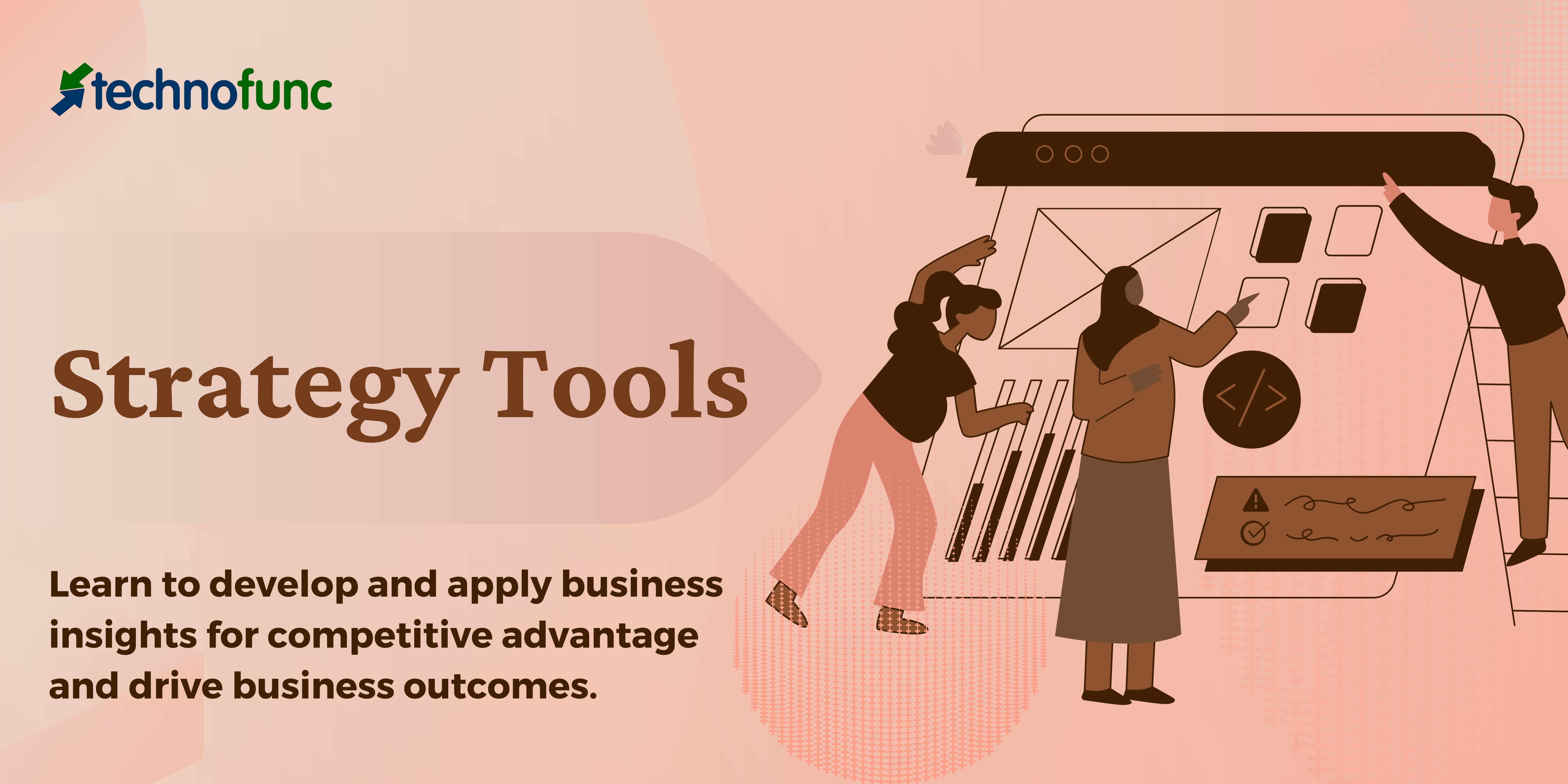- Home
- Business Processes
- Industry Knowledge
- Aerospace Industry
- Automotive Industry
- Banking Domain
- BFSI Industry
- Consumer/ FMCG Industry
- Chemicals Industry
- Engineering & Construction
- Energy Industry
- Education Domain
- Finance Domain
- Hospitality Domain
- Healthcare Industry
- Insurance Domain
- Retail Industry
- Travel and Tourism Domain
- Telecom Industry
- Leadership Skills
- eLearning
- Home
- Leadership Skills
- Strategy Tools
Strategy Tools

Leadership Skills – Critical and Strategic Thinking Skills
“Strategy without tactics is the slowest route to victory, tactics without strategy is the noise before defeat.” —Sun Tsu
In today’s highly competitive and fast-changing business world, leaders need to find a balance between meeting current expectations versus optimizing tomorrow's possibilities. By building strategic thinking skills, leaders can continually develop and apply business insights for competitive advantage and drive business outcomes. The better you become at developing strategic insights, the more valuable you become to your organization.
TechnoFunc brings to you this section on strategic thinking and associated tools to help you build the qualities and skills of strategic thinkers. Learn the key elements and process of strategic thinking and leverage the suggested tools in your work environment. Build your expertise in thinking creatively, analyzing information, prioritizing your actions, and making trade-offs to enhance your skills for thinking strategically.
Generating Ideas using Brainstorming

The brainstorming technique was developed by Alex F. Osborn in 1957 and brainstorming means where a team of members generates a large amount of alternative fruitful ideas on a specific problem without any criticism and then evaluates each idea in terms of their pros and cons. Brainstorming techniques fall into four broad categories: visioning, exploring, modifying, and experimenting.
Generating Ideas using SCAMPER

SCAMPER is an activity-based thinking process that can be performed by Cooperative learning. SCAMPER is an acronym that provides a structured way of assisting students to think out of the box and enhance their knowledge. This can be used in the organizational context as a technique for creative problem solving and as a toolkit to generate fresh ideas.
Investment Theory of Creativity

Sternberg in the year 2006, proposed the investment and confluence theory focused on understanding creativity. According to the investment theory, creativity requires a confluence of six distinct but interrelated resources known as intellectual abilities, knowledge, styles of thinking, personality, motivation, and environment. It emphasizes that creativity is not about one thing, but about a system of things.
Know Yourself & Your Values

At different points in your professional career, it is helpful to identify your core values. Values are the qualities considered to be the most important guiding principles that determine the priorities in your life and greatly influence your career choices. Your career brings happiness when it is in agreement with the beliefs you have about what is important and meaningful to you. Awareness of your values will help you develop a clearer sense of what's most important to you in life.
Lean Leadership Approach

We define Lean as the systematic elimination of waste through a continual effort to decrease inefficiency; the lean leader strives to create a more efficient organization. Lean leadership is a philosophy. It is a consistent way of thinking and being in your role as a leader. The focus of this approach is on raising new leaders and help their team embrace a culture of continuous improvement. Learn what we mean by lean leadership style and its principles.
Explore Our Free Training Articles or
Sign Up to Start With Our eLearning Courses

About Us
Learning
© 2023 TechnoFunc, All Rights Reserved